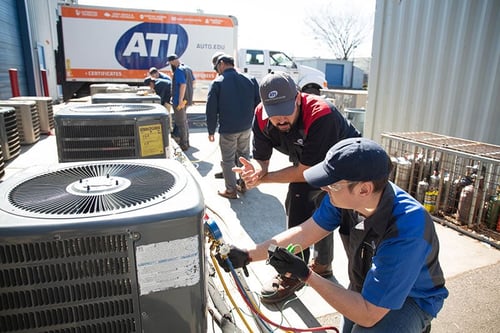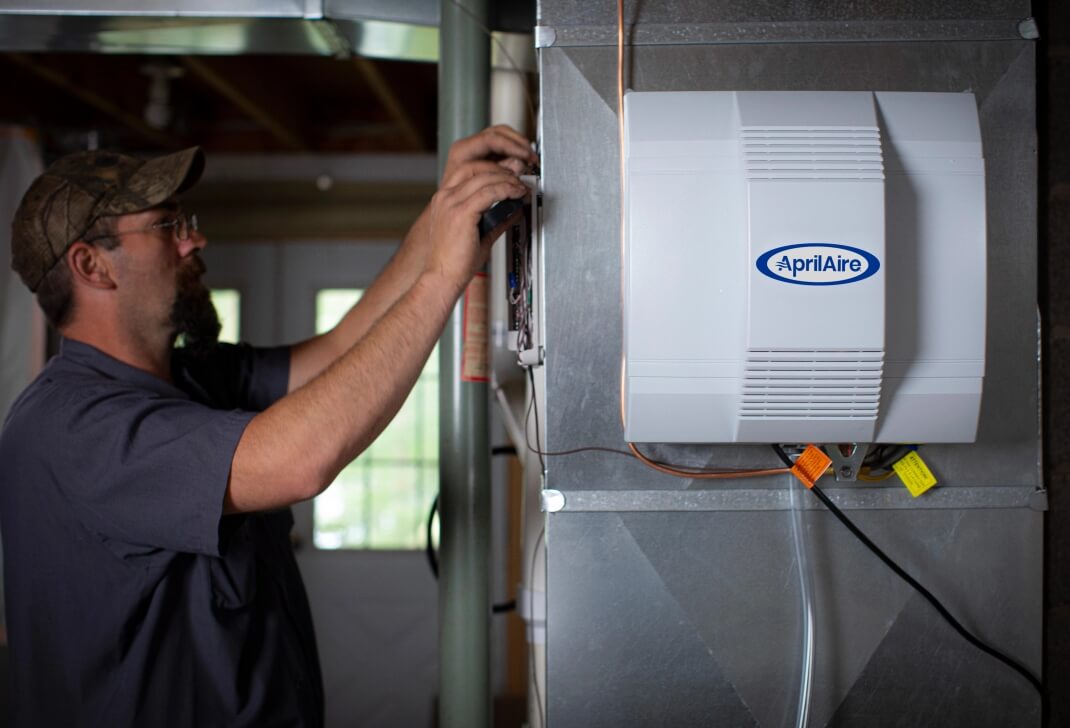Residential AC System Installation for Effective Home Cooling
Residential AC System Installation for Effective Home Cooling
Blog Article
A Comprehensive Appearance at Heating And Cooling Providers and Their Effect on Energy Effectiveness and Price Savings
With technical improvements like clever thermostats and high-efficiency parts, the capacity for enhancing system performance is large. As we explore the intricate partnership in between Heating and cooling systems and operational prices, consisting of the shift in the direction of eco pleasant choices, the concern occurs: exactly how can these methods be successfully carried out to take full advantage of both economic and eco-friendly advantages?

Importance of A/c Solutions
heating and cooling systems are an essential element of modern structures, playing a vital function in keeping healthy and balanced and comfy indoor environments. These systems, encompassing air, home heating, and ventilation conditioning, are vital for managing temperature level, humidity, and air top quality, thus making sure the wellness of residents. Efficient cooling and heating systems contribute considerably to creating an ideal interior climate, which is important for both residential and industrial spaces.
In industrial buildings, cooling and heating systems are indispensable to offering a efficient and secure atmosphere. By controlling indoor environment conditions, these systems assist protect against the growth of mold and the spread of air-borne contaminants, hence protecting the health of clients and employees. Additionally, in household setups, heating and cooling systems improve living conditions by supplying consistent thermal comfort and boosting interior air high quality, which is important for general health.
Additionally, the style and upkeep of a/c systems have a straight influence on energy usage and functional prices. Effectively designed and kept systems can substantially decrease energy usage, bring about reduced utility costs and a smaller sized carbon impact. The effectiveness of these systems thus plays an essential role in advertising sustainability and energy preservation within buildings, highlighting their value in the modern building landscape.
Advances in Heating And Cooling Technology
Development in cooling and heating modern technology is transforming the way buildings handle indoor climates, ushering in a new era of performance and control. Current advancements have actually focused on maximizing energy consumption while boosting user comfort. One noteworthy advancement is the integration of wise thermostats, which make use of fabricated intelligence to discover tenancy patterns and adjust temperatures accordingly, lowering unneeded power use.
Variable Refrigerant Circulation (VRF) systems represent one more significant jump ahead. These systems permit for accurate temperature level control in different areas of a building, boosting comfort and minimizing energy waste. VRF innovation is especially advantageous for big industrial spaces, offering versatility and scalability.
In addition, the development of Net of Things (IoT) tools has transformed HVAC systems right into interconnected networks efficient in real-time data collection and analysis. This connection enables predictive maintenance, making certain systems run at peak effectiveness and decreasing unforeseen downtime.
Moreover, improvements in products and design, such as using high-efficiency coils and compressors, have actually enhanced total system performance - Heating Contractor. The adoption of environmentally pleasant cooling agents also highlights the sector's dedication to sustainability
These technical advancements are critical in decreasing operational expenses and environmental influence, setting new requirements for developing climate monitoring.
A/c Maintenance and Performance
Ensuring optimal efficiency of heating and cooling systems prolongs beyond technical improvements; it also depends upon efficient upkeep techniques. Routine maintenance is crucial for maintaining effectiveness, decreasing power central ac cost consumption, and extending the life expectancy of heating and cooling systems. The primary objective is to make certain that all parts operate at their peak possibility, thereby reducing energy wastage and maintaining constant indoor comfort degrees.
Regular upkeep jobs, such as cleaning or replacing air filters, inspecting cooling agent levels, and inspecting ductwork for leakages, are crucial for protecting against unnecessary pressure on the system. Blocked or unclean filters can obstruct air flow, causing the system to function more challenging and consume more power. Similarly, poor cooling agent degrees can minimize cooling efficiency, resulting in higher operational expenses.
Additionally, regular examinations by qualified specialists can recognize possible issues before they rise into pricey fixings or system failures. These evaluations frequently consist of inspecting electrical links, adjusting thermostats, and guaranteeing the general stability of the a/c system. By addressing small problems early, organizations and home owners can prevent unexpected failures and improve power performance.
Economical HVAC Solutions
For those wanting to get one of the most out of their home heating, air flow, and air conditioning systems without breaking the bank, exploring cost-effective a/c options can make a significant difference. One immediate action is to buy programmable thermostats, which enable individuals to set details temperature levels for various times of the day, optimizing power use and reducing unneeded usage. By automating temperature modifications, home owners can achieve considerable cost savings on energy expenses.
Normal maintenance is one more critical component of economical a/c management. Making certain that filters are cleansed budget hvac or replaced frequently, ductwork is sealed, and devices are serviced by experts can prevent expensive repair work and improve system long life. Precautionary upkeep not just maintains system performance yet also aids in staying clear of unanticipated break downs that can cause expensive emergency repairs.
Additionally, retrofitting existing systems with energy-efficient elements, such as variable speed motors or high-efficiency compressors, can be a sensible financial investment. These upgrades improve operational performance, lower energy use, and can commonly be executed at a portion of the cost of a complete system replacement.
Environmental Impact Reduction
Minimizing the ecological impact of heating and cooling systems is vital in today's search of lasting living. HVAC systems are considerable contributors to energy intake, making up nearly 40% of power use in commercial structures. This energy need usually depends on fossil fuels, resulting in greenhouse gas emissions and ecological destruction. heating and cooling places near me Transitioning to more effective systems, such as those making use of renewable resource sources, can considerably mitigate these effects.
Technological improvements in heating and cooling design and procedure, including the assimilation of smart thermostats and energy-efficient warmth pumps, are crucial in decreasing carbon footprints. These developments allow for enhanced power use, lessening wastage and enhancing total system performance. Furthermore, embracing regular upkeep methods makes certain cooling and heating systems run at peak effectiveness, further stopping unneeded power intake.
Furthermore, making use of ecologically friendly cooling agents is vital, as traditional refrigerants, like CFCs and HCFCs, have actually been eliminated due to their ozone-depleting buildings. Modern choices, such as hydrofluoroolefins (HFOs), offer minimized ecological threats, lining up with global ecological protocols. By embracing these sustainable techniques, cooling and heating solutions can play a transformative role in lowering ecological impacts, advertising power performance, and fostering an extra sustainable future.
Final Thought

Additionally, the style and upkeep of HVAC systems have a straight influence on energy intake and operational costs. Routine upkeep is vital for sustaining performance, decreasing energy usage, and expanding the life span of Cooling and heating systems. HVAC systems are substantial factors to energy consumption, accounting for nearly 40% of power use in business buildings. Additionally, taking on regular upkeep techniques guarantees Heating and cooling systems run at peak performance, more reducing unnecessary energy intake.
The shift to eco pleasant HVAC systems even more reduces functional prices and advertises sustainability. (Heating Contractor)
Report this page